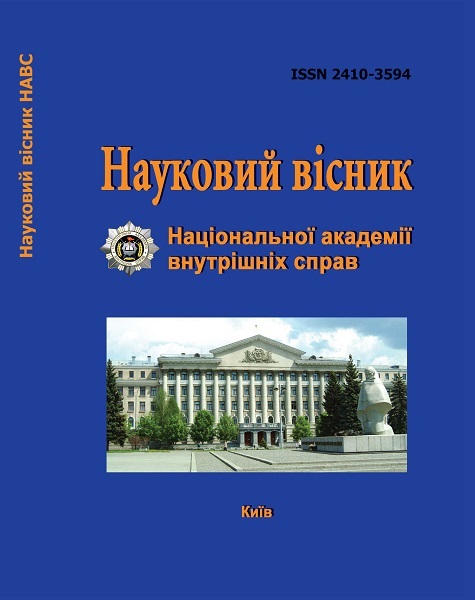Organizational and Legal Forms of Cooperation in the Field of Combating Organized Crime: European Union Experience
Abstract
In the context of the integration processes in Ukraine and the European Union, police cooperation becomes of particular importance, which determines not only the need to combine the efforts of States and increase the efficiency of the use of existing capabilities of international police cooperation, but also to take coordinated measures at the national and international levels to improve appropriate legal regulation.
The development of Europol as the central office of the European Union for collecting operational information is caused by the importance of identifying priorities for the study of issues of information exchange between European Union member states in the field of combating crime, terrorism, etc. The unique capabilities of the European police office to manage such information make real further dynamic development of the information base capable of facilitating an effective operational response to key security threats. In the modern world, cyberspace remains a place where the number of special military operations and confrontations is constantly increasing every year. An important component of the national cyber security system of any country in the world remains the state-guaranteed cyber defense which means a set of political, economic, social, military, scientific, scientific and technical, information, organizational and legal and other activities carried out in cyberspace and aimed at ensuring the defense of the sovereignty and defense capability of the state, preventing armed aggression. Therefore, in this article the author emphasize that there is an urgent need to accelerate the improvement of national legislation in accordance with the present challenges and application potential of the Internet to meet the challenges of armed struggle, which involves the active reformation of management systems by the relevant security sector; ordering the regulatory field, which should ensure the integrity of state policy in this area; active explanatory work among the population regarding possible risks as a result of cyber-threats; increasing the number of relevant departments involved in cyber defense system; the development of their own samples of cyber weapons and conducting trial cybernetic attacks, strikes in cyberspace; strengthening control over national cyberspace. An important development in this context was the ratification in July 2017 of the Agreement between Ukraine and the European Police Office on operational and strategic cooperation aimed at establishing cooperation between Ukraine and Europol in preventing and combating organized crime, terrorism and other forms of international crime, exchange of information through the designated Ukrainian National Contact Point.
Downloads
Abstract views: 335 PDF Downloads: 43
- Authors reserve the right to authorship of their own work and transfer to the magazine the right of the first publication of this work under the terms of the Creative Commons Attribution License, which allows other persons to freely distribute published work with mandatory reference to authors of the original work and the first publication of an article in this magazine.
- Authors have the right to enter into separate additional agreements on non-exclusive dissemination of the work in the form in which it was published in the journal (for example, to post an article in the institution's repository or to publish as part of a monograph), provided that the link to the first publication of the work in this journal is maintained.
- The journal's policy allows and encourages the posting of articles by authors on the Internet (for example, in electronic storehouses of institutions or on personal websites), both before the submission of this manuscript to the editorial office and during its editorial processing, as this contributes to the creation of a productive scientific discussion and positively affects the efficiency and dynamics of citing the published work.




